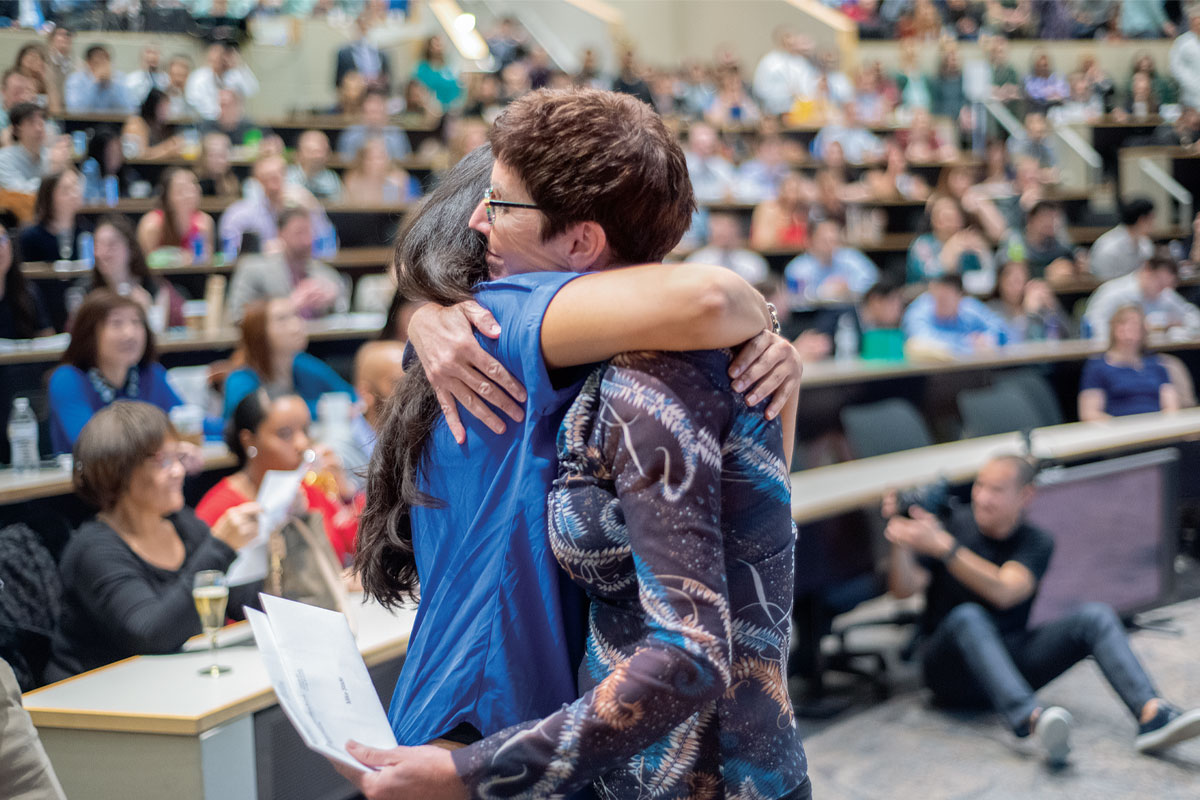
For medical students, the third Friday in March marks the beginning of their careers as physicians, a milestone in which they learn where they will train as residents after graduation. For many, the occasion, known as Match Day, is as momentous as a wedding. For better or for worse, it’s a life event forever etched in memory.
Twenty-one years ago, when Kathryn M. Diemer, MD, began overseeing Match Day at the School of Medicine, her skills as an academic physician and scientist sufficed. But soon, her role became more complicated and demanding, a mirrored response to the increasing competitiveness of the match process itself.
Today, Diemer’s roles include counselor, strategist, cheerleader, data analyst, mother figure and, to survive it all, dedicated Diet Coke drinker. To facilitate the best Match Day results, Diemer gets to know the 100-plus students in every medical class. She’s often on-call during evenings and weekends, calmly problem-solving with current or past medical students experiencing a professional — or personal — crisis.
“Match Day was a lot easier 20 years ago,” said Diemer, an assistant dean for career counseling and a professor of medicine. “Today, it’s significantly more competitive.”
The higher expectations correlate with a steady rise in the number of graduating medical students competing for a limited number of residency spots. In 2021, the National Resident Match Program recorded the largest match ever, with 48,700 applicants registered and 38,106 positions offered.
In 2021, the national match rate for U.S. doctor of medicine applicants seeking first-year positions hovered at 92.8%. That same year, the School of Medicine boasted a match rate of 96%. Two years earlier, in 2019, all 125 students matched.
The success of our Match Day program is rooted in Dean Diemer’s dedication as an adviser, advocate and mentor.
Eva Aagaard, MD
“The success of our Match Day program is rooted in Dean Diemer’s dedication as an adviser, advocate and mentor,” said Eva Aagaard, MD, vice chancellor and senior associate dean for education and the Carol B. and Jerome T. Loeb Professor of Medical Education. “She goes above and beyond to ensure that our students are engaged, prepared and supported throughout the match process.”
Since 1952, the National Resident Matching Program has acted as a clearinghouse to fill positions at U.S. teaching hospitals, pairing the preferences of graduating medical students with those of residency program directors. Based on rank lists provided by both groups, a match is generated by a computerized mathematical algorithm that served as the foundation for the 2012 Nobel Prize in Economic Sciences.
“The algorithm is accurate,” Diemer said. “Match disappointments stem from everything beforehand.”
Students will match if they submit realistic rank lists and favorably impress residency directors. “Which is where we come in,” Diemer said, referring to herself and Angela MacBryde, program coordinator in career counseling. “I tell students, ‘If you stick with Angie and me, you’ll be fine.’ ”
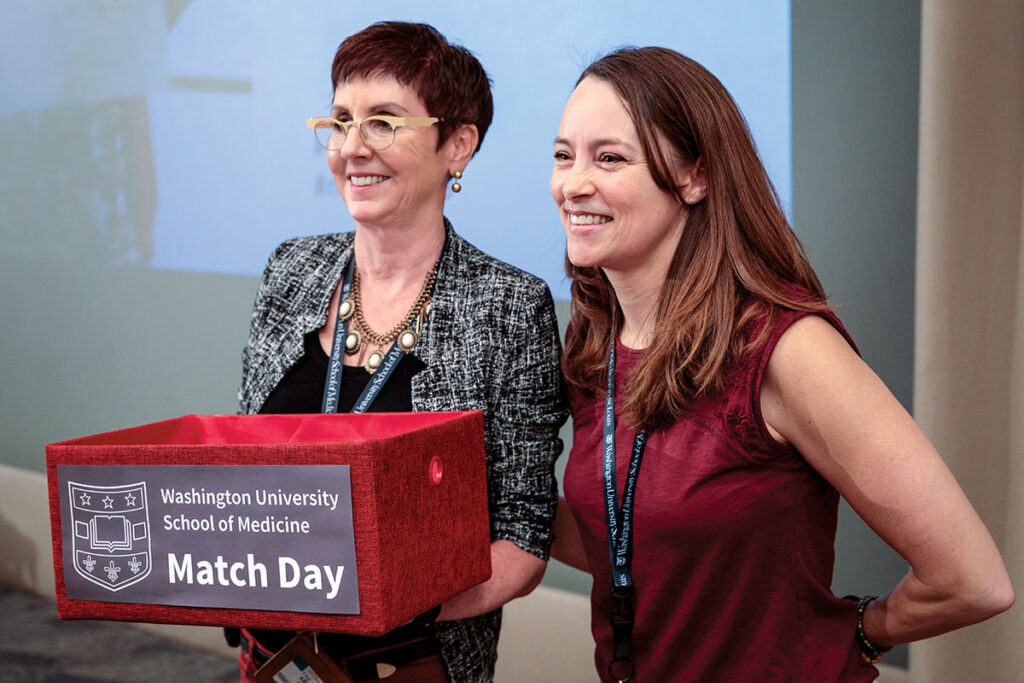
Match Day preparation begins in students’ first two years of medical school. “Our office has evolved over time,” MacBryde said. “Initially, we mainly advised fourth-year students about residency programs and the application process. Now, we meet students earlier to help them explore and select their best-fit medical specialty.
“This is an involved process that requires guiding students toward necessary clinical, service and research experiences, as well as making sure they network sufficiently to understand what life would look like in a certain specialty. The better we are, the better our match results and, importantly, the happier our students.”
Tapping into resources
Diemer’s office has enlisted the university’s writing and career centers, both on the Danforth Campus, to help students craft personal statements and refine job-interviewing skills.
Additionally, Diemer compiles and analyzes annual match data. “We have information on average board scores for particular residency programs and on the number of places in which students should interview, based on a specialty’s competitiveness or student academic records,” she said. “We also gather feedback about students who didn’t match. None of these tools were available before.”
Over the years, Diemer has developed trusted relationships with the nation’s residency directors. “I’ve been doing this long enough that I have cellphone numbers and can pick up the phone and call any time. They know me, and they know our program,” she said.
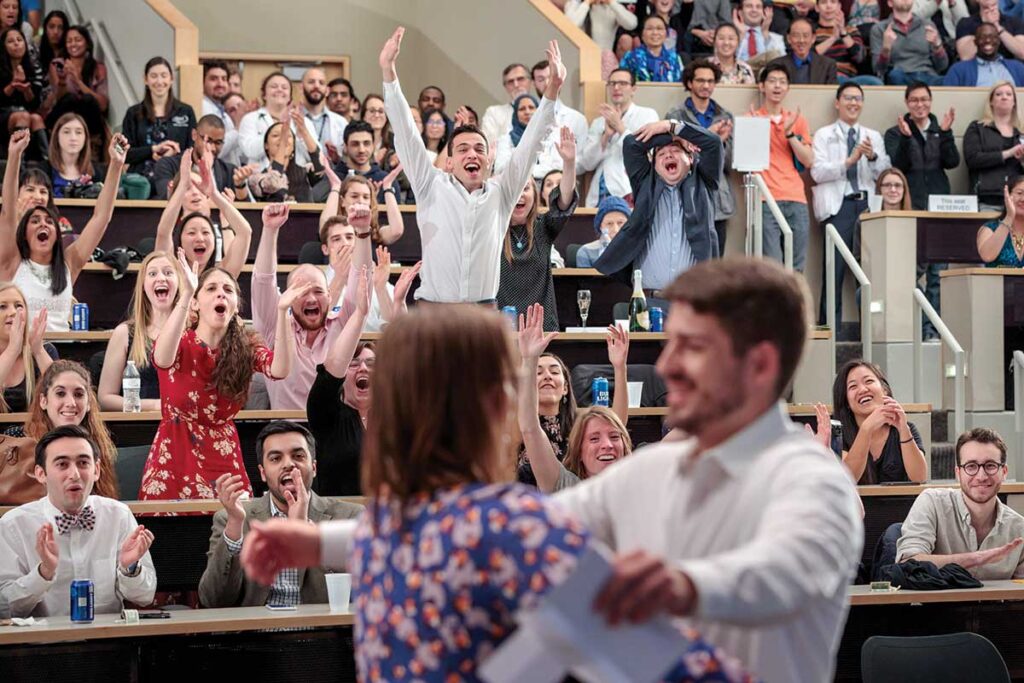
Diemer even has contacted residency programs on behalf of a student’s spouse or partner attending another medical school. “We support our students and, sometimes, that means helping their significant others,” Diemer said. “Couples matching adds layers of complexity to the process.”
In 2020, Kate and Will Gerull — high school sweethearts who recently celebrated their sixth wedding anniversary — successfully couples-matched from Washington University to Barnes-Jewish Hospital, their first choice in the highly competitive specialties of orthopedic surgery and general surgery, respectively.
Surprisingly, they weren’t too nervous.
“We’re used to it,” Kate Gerull said. “We applied to the University of Washington for undergraduate and here for medical school. Honestly, those times felt more stressful.”
Will Gerull nodded in agreement: “That’s because this time we had an incredible, fierce ally in Dr. Diemer.”
The Association of American Medical Colleges recognized Diemer’s dedication and talent with the 2018 Excellence in Medical Student Career Advising Award.
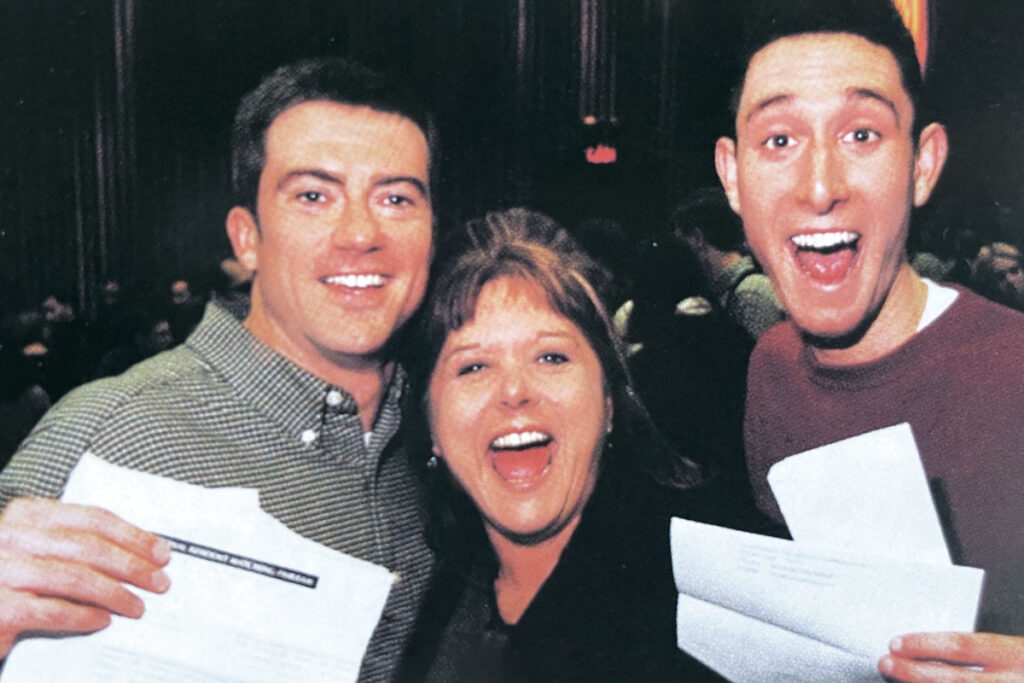
“Kathy Diemer is the reason why Washington University’s Match Day program is highly regarded nationwide,” said S. Andrew Josephson, MD, a professor and chair of the Department of Neurology at the University of California-San Francisco School of Medicine, who also has served as a UCSF assistant residency program director. “Residency programs know that students recommended by Kathy will be outstanding. The neurology residents she’s referred to our program have been nothing less than spectacular.”
Josephson brings a unique perspective, having worked with Diemer on both sides of the match process. In 2001, Diemer helped Josephson match from Washington University to neurology at UCSF. “She was — she is — incredibly friendly, thoughtful, smart, kind and funny,” he recalled. “These qualities go a long way in easing Match Day stress. Still today, you’ll not find a stronger advocate for Washington University and its medical students than Kathy Diemer.”
Asking the tough questions
However, properly advocating often requires bluntness. “I will caution students applying for competitive residencies to have a parallel plan,” Diemer said. “I’m very realistic and honest, but I will also support students applying to a competitive residency because you never want regret.”
Diemer also asks tough questions. “You want to be a surgeon because grandma had cancer and a surgeon saved her life, or because your parents were surgeons, but do you have the personality of a surgeon? Do you love the high-stakes drama of an operating room? Because if you don’t, then you may not enjoy surgery. Do you want to form one-on-one relationships with your patients? Because if you do, then you may want to consider internal medicine instead.”
She imparts perspective. She humbles. “To be a medical student at Washington University, you have to be a superstar,” Diemer said. “But not everyone can be top in the class. Not everyone can match at the top-ranked residencies. And that’s OK. There are many paths to success.”
And she critiques. To the student mumbling “ums” during a practice interview, or to the student who overshares personal information, or to the student who changes the subject from his love of neurology to his love of magic tricks, Diemer interrupts: “No, no and nope, you will not talk about that during your residency interviews.”
Because honesty can hurt, Diemer stocks her office with Kleenex. She and MacBryde also installed a door between their adjoining offices. “That way we can comfort a crying student in privacy,” MacBryde said.
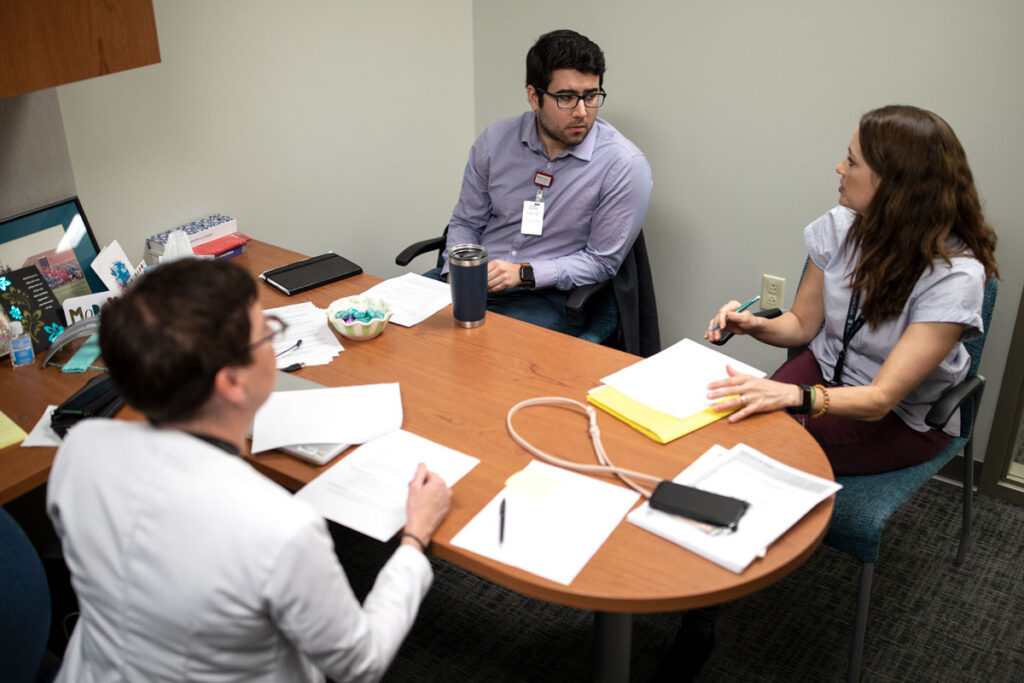
Diemer’s office is also a place where students go when they need reassurance or a confidence boost from someone who believes in them. She’s offered relationship advice, encouraged students after a setback and hugged them through the pains of illnesses and the deaths of their loved ones.
With Diemer’s encouragement, Vikram Shankar, MD, MPH, withdrew from the match in 2017 amid doubts about pursuing plastic surgery. “I wasn’t excited,” he recalled. “It felt more like an obligation.”
Shankar called Diemer. Calmly, sympathetically, she recounted students who felt happier after switching specialties. Diemer shared how she had matched in obstetrics-gynecology, but three months into her residency, she felt unsatisfied and changed to internal medicine. Today, Diemer is a nationally recognized expert in osteoporosis and metabolic bone disease.
“It was valuable to have her reaffirm the importance of being passionate about your specialty,” Shankar said. “With her support, I took a gap year to explore other specialties. I did a rotation in ophthalmology, and I fell in love with the mix of medicine and surgery.”
However, Shankar feared disapproval during residency interviews.
“No problem,” Diemer coached. “Say, ‘I was going for plastic surgery, but then I did ophthalmology, and I loved it.’ Ophthalmology directors will react, ‘Of course, you love ophthalmology. Of course, you changed your mind.’ ”
In 2018, Shankar matched in ophthalmology at the prestigious Wills Eye Hospital in Philadelphia.
An emotional journey
Every student’s match story differs. And every student causes Diemer’s stomach to flutter on Match Day. Most get their top match choices. A few don’t. “I find out the day before,” Diemer said. “I go through a range of emotions. Happiness. Excitement. Pride. For students disappointed in their matches, I feel sick to my stomach. I care for my students deeply.”
Even so, the day before Match Day, she avoids students like a celebrity dodging paparazzi. “On that day, we get an unusually high number of students dropping by the office to say hi,” Diemer said, chuckling. “You can feel their excited, nervous energy. I have to lock my office door and hide.”
On that day, MacBryde’s role as assistant is more Hollywood awards show than top-tier medical school. “Once we saw a student while getting coffee, and, abruptly, I had to guide us in another direction,” she said. “Sometimes, I wish I had a wig and sunglasses for Dr. Diemer.”
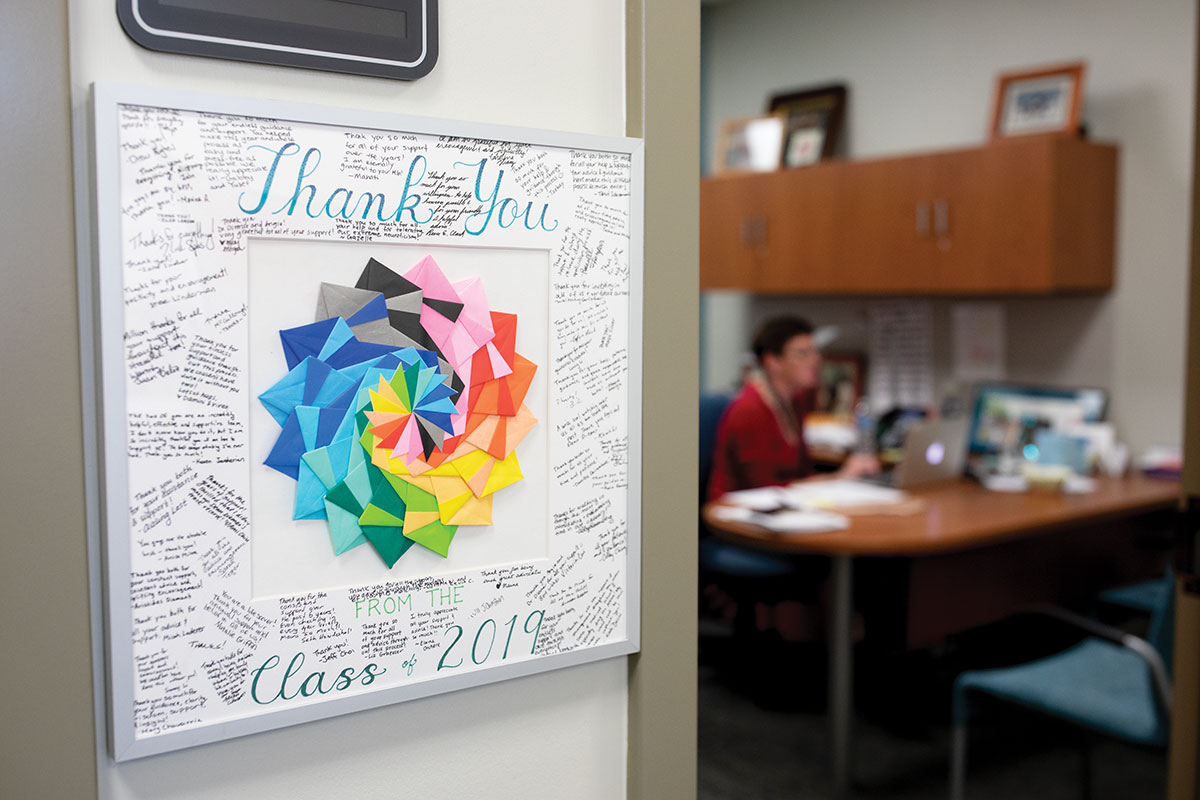
Match Day morning brims with jitters. Medical schools celebrate in different ways. Some have students simultaneously open envelopes that divulge the names of the institutions where they matched. Others host formal brunches or informal gatherings at restaurants.
At Washington University, a big screen behind the stage at the Eric P. Newman Education Center recalls each student’s ambitions as first-year students and juxtaposes that past with the future. Students individually walk, strut or dance across the stage to theme songs each chooses. Some invite friends and families — including babies, toddlers and teens — to accompany them on stage. Each then reads out loud his or her match.
“I’m excited, nervous and in awe during the ceremony,” Diemer said. “Every Match Day is as thrilling as my first one 21 years ago.”

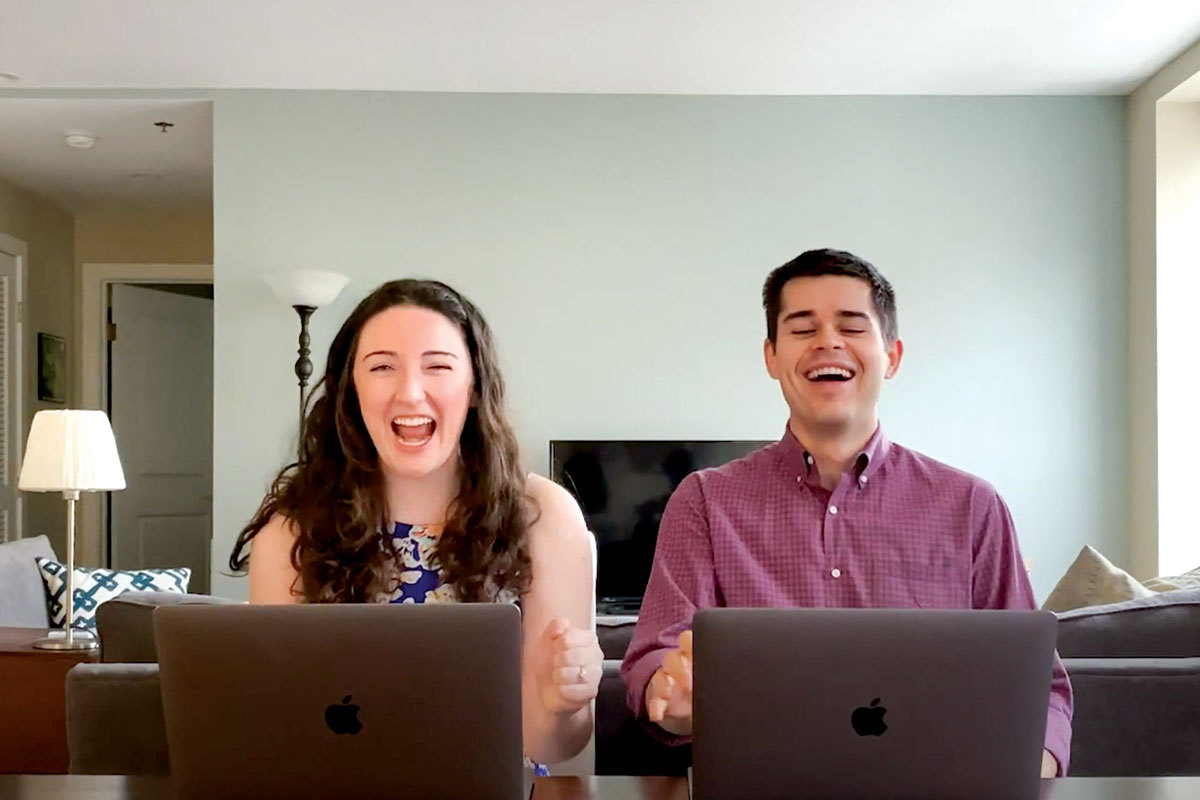
Matching in a pandemic
Months before the pandemic arrived in the U.S., School of Medicine faculty, staff and students started imagining ways to honor Kathryn Diemer, MD, who would oversee her 20th Match Day, on March 20, 2020.
Flower bouquets. Chocolate cake. Handwritten letters of appreciation.
But like most events in 2020, nothing worked according to plan.
“To say my 20th Match Day was unforgettable is an understatement,” said Diemer, assistant dean for career
counseling and a professor of medicine.
When Match Day arrived, the Class of 2020’s 118 physicians-to-be ended up celebrating virtually. Instead of faculty, family and friends clapping and cheering in the Eric P. Newman Education Center (EPNEC), their congratulations were offered through FaceTime, Zoom and various social media platforms.
“Resilience is key to being a successful doctor, and the resiliency these students showed was nothing less than inspirational,” Diemer said.
For Match Day 2021, a hybrid celebration was offered to the 105 graduating students.
Some students unveiled their matches at home or in small meeting places with a handful of loved ones. But many attended the traditional celebration at EPNEC — albeit masked and socially distanced. Each student took center stage, opened an envelope revealing the match and announced it to the class.
Match Day 2021 was open only to students, who were each allowed one guest. Groups of students and their guests rotated in and out of the auditorium from nearby rooms to minimize capacity.
“The Class of 2021 has shown remarkable resilience since the beginning of the pandemic,” Diemer said, “from adjusting to abrupt changes in classes and clinicals, to spearheading student volunteer efforts against COVID-19, to mobilizing to fight health inequalities and racial injustices. The pandemic spotlighted the school’s exceptional students.”
Published in the Autumn 2021 issue





 Share
Share Tweet
Tweet Email
Email